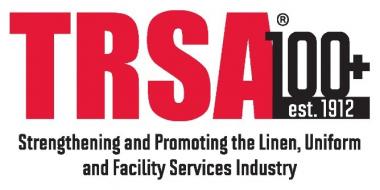TRSA Responds to UK Study on C. difficile: Unnecessarily Alarming
TRSA said today that a study published in Infection Control and Hospital Epidemiology painted an unnecessarily alarming picture regarding the risk of C. difficile contamination from hospital linens and potential infectious outbreaks.
The study, titled From ward to washer: The survival of Clostridium difficile spores on hospital bed sheets through a commercial UK NHS healthcare laundry process concludes that “processing infected linen in commercial washer/extractor cycles could disseminate low levels of C. difficile spores and may be contributing to sporadic outbreaks of C. difficile infection (CDI).”
“Therefore, even in the study’s assessment, the findings are conditional,” said TRSA President and CEO Joseph Ricci. Ricci said that additional facts mitigate them even more:
• The conclusion is based on one wash formula’s inability to meet the British National Health Service (NHS) standard. This standard indicates that water temperature and the amount of time that linen is washed are the true indicators of wash quality.
• Best-management practices dictate that the quality of the wash process is maximized by using a complete wash formula that includes temperature, chemistry and mechanical action, which are customized to address various soil levels and generate hygienically clean textiles. In addition, heat from drying, ironing and finishing these linens also contributes to the linens’ cleanliness. Perhaps the only valid conclusion that can be reached from this research is that the one wash formula tested in the study is inadequate to remove C. difficile.
• Most outsourced, professionally laundered healthcare linens and uniforms are processed using a tunnel washer, not washer/extractors used in the research.
• Most healthcare-related wash formulas are designed to account for time, temperature, chemistry and mechanical action that appropriately eliminate C. diff. For example, the FDA recently approved the use of a disinfectant specifically formulated to kill off C. difficile spores.
• TRSA has been collecting microbiological testing data since 2014 on linen and uniform service laundries that have achieved and maintained the Hygienically Clean certification by eliminating bacteria on soiled linens to negligible levels; there have been no positive identifications of C. difficile.
• difficile contamination linked to linens is extremely rare. The best way to protect your facility and patients is to partner with a Hygienically Clean certified laundry.
TRSA




